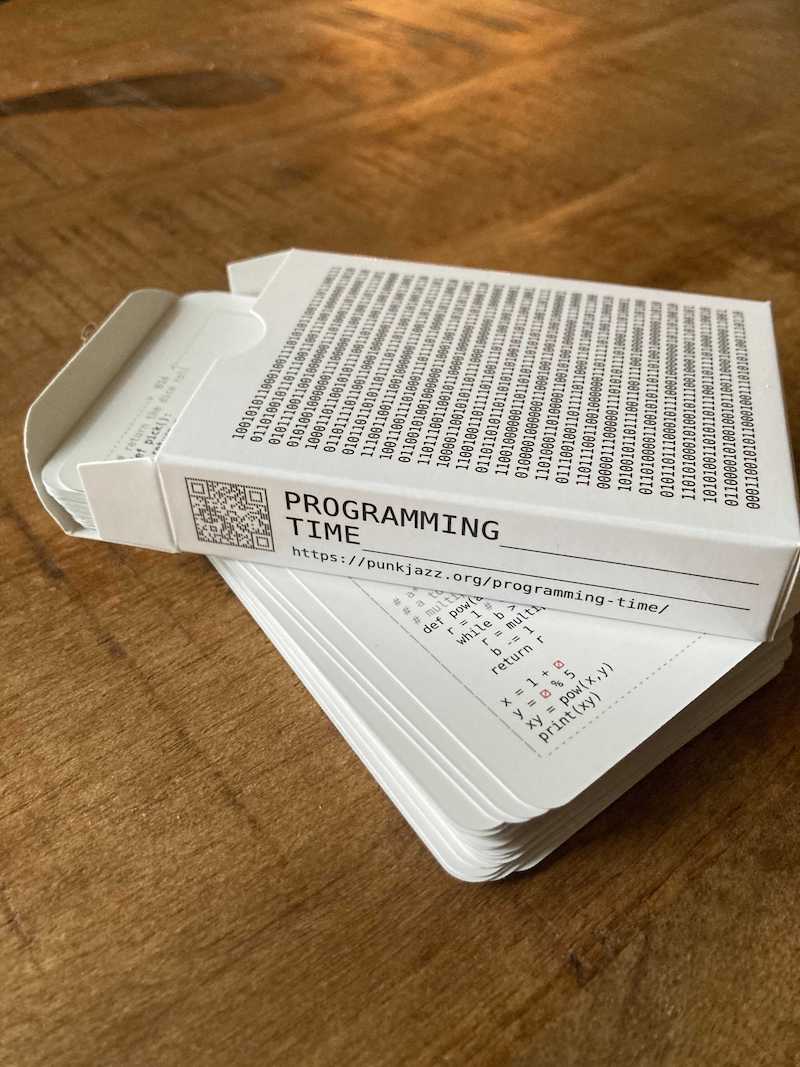 Programming Time, which is a game to teach python and some more fundamental algorithms, from hash tables to RSA
Programming Time, which is a game to teach python and some more fundamental algorithms, from hash tables to RSA



 Programming Time, which is a game to teach python and some more fundamental algorithms, from hash tables to RSA
Programming Time, which is a game to teach python and some more fundamental algorithms, from hash tables to RSA
 The C Pointer Game - Pointers, Arrays and Strings, a game to teach kids to look at the computer memory and understand references and values
The C Pointer Game - Pointers, Arrays and Strings, a game to teach kids to look at the computer memory and understand references and values
 The Unix Pipes Game, a game to teach kids to use basic UNIX commands:
The Unix Pipes Game, a game to teach kids to use basic UNIX commands: cat, sort, grep, head, tail, wc, uniq
 The Unix Pipes Game - Process Substitution, an expansion of the Unix Pipes Game to teach process substitution and also:
The Unix Pipes Game - Process Substitution, an expansion of the Unix Pipes Game to teach process substitution and also: paste, tr, cut, bc
 RunLength Encoding for Kids, small cards "game" to explain runlength encoding
RunLength Encoding for Kids, small cards "game" to explain runlength encoding
 PUNK0 - The Function Composition Card Game, use cards to manipulate a list and use its values to win the game
PUNK0 - The Function Composition Card Game, use cards to manipulate a list and use its values to win the game
PROJEKT: OVERFLOW, RISCV assembler boardgame
 Programming for kids, a log of my journey of teaching my daughter how to code
Programming for kids, a log of my journey of teaching my daughter how to code





